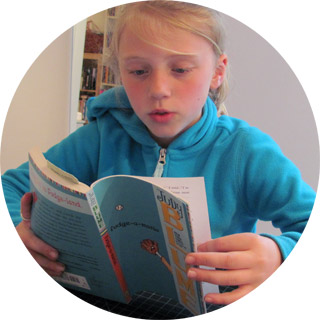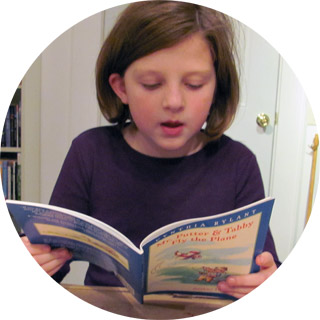
Writing Good Book Reports
A book report is a description, evaluation, and analysis of a book that you have read.
Writing a book report helps you analyze the book in-depth and understand why the author told the story in a certain way. It also helps you clarify different aspects of the story (e.g. the theme) and understand unique facets of the characters' personalities.
Take good notes as you are reading the book—they will help you when you start writing your report.
When you write about the plot, think of the following questions:
- What was the story about?
- Who were the main characters?
- What did the main characters do in the story?
- Did the main characters run into any problems?
- Did the main characters have any adventures?
- Who was your favorite character? Why?
- What was the conflict and how was it resolved?
- What was the lesson learned?
As you describe your thoughts about the story, ask yourself:
- Could I relate to any of the characters in this story?
If so, how? If not, why not? - Have I ever done any of the things or felt any of the same emotions that these characters did?
Keep these thoughts in mind as you write the report, expand on certain sections and give your opinion:
- Did you like the book?
- What was your favorite part of the book?
- Do you have a least favorite part?
If so, what is it and why? - If you could change something in the book, what would it be?
- Did you like the ending, and if not, how would you rewrite it?
If the book report required you to do research or read other books with similar topics, be sure to list your sources and write a bibliography.

Book Report Outline
- Title and author of book
- Setting—Where and when the book took place
- Type of book—Genre—fiction, nonfiction, autobiography, history, mystery
- Main characters—One or two sentences about what makes the characters unique and interesting
- Introduction—Introduce your book and use a topic sentence to describe the central idea and the main events
- Summary—Describe briefly what happened during these main events
- Conflict—What is the conflict? How are the characters working toward solving it?
- Reflections—What do you think about the book? Would you recommend it to your classmates?
- Conclusion—End your writing with a proper conclusion that draws much of what you said together into a cohesive whole
Additional Points to Keep in Mind
- Draw your reader in with your first intriguing sentence
- Write complete sentences and use juicy verbs
- Use the same tense (past, present, future) throughout your writing
- Be consistent with your point of view
- Remember to start a new paragraph when you change subjects
- Stick to your main idea
- Don't ramble—move along to keep your report active and interesting
- Use proper punctuation
- Read your work aloud to correct any punctuation
